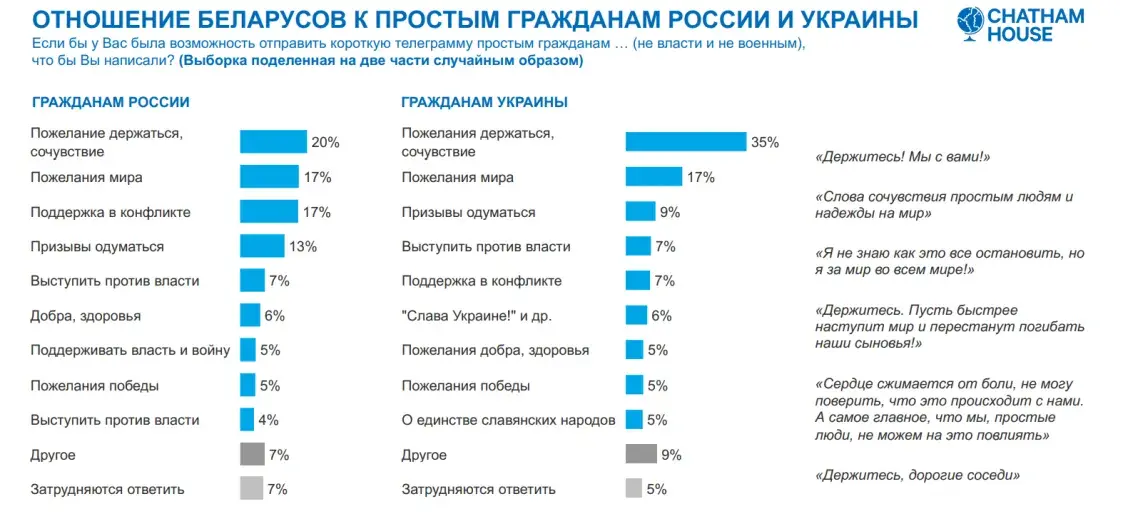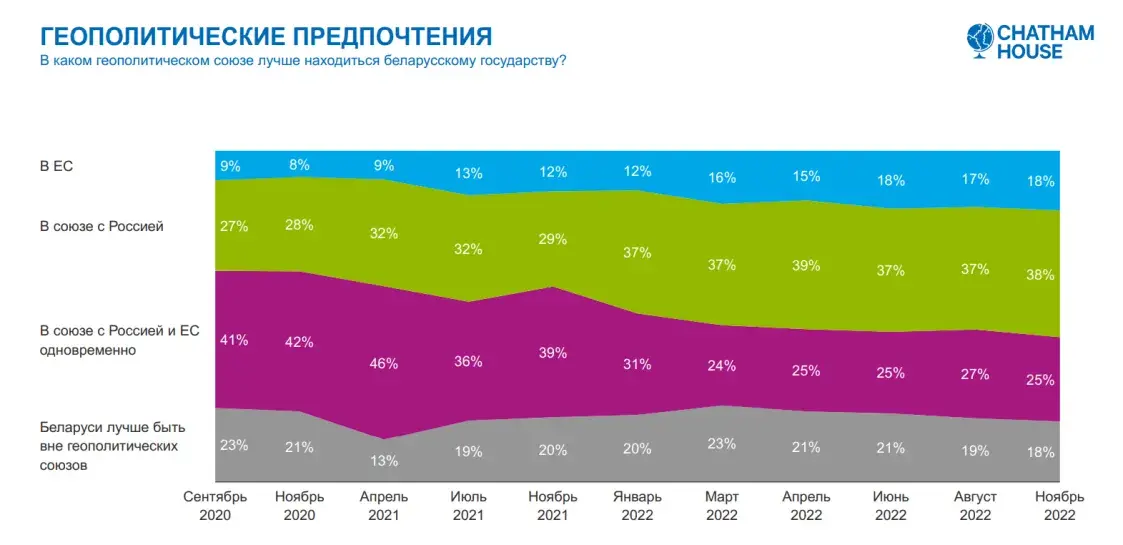Over 30% of Belarusians still in favor of union with Russia

Pro-Russian forces rally in Minsk / Euroradio
A month before Russia's invasion of Ukraine, 31 percent of Belarusians believed that Belarus would be better off in an alliance with Russia and the European Union simultaneously. After the war began, that number dropped to 25% in November, according to the latest Chatham House poll. However, this does not mean everyone has chosen a more pro-Western vector.
Half of them watch Russian TV
As many as 53% of Belarusians watch Russian television once a week or more often, while 11% do it several times a day. According to these figures, Russian TV is ahead of the Belarusian state TV (50% at least once a week).
But watching does not mean trusting everything. Trust in Russian TV channels was reported by 39% of the respondents, while 38% trusted Belarusian State TV channels. By comparison: 33% believe that Russian TV is not trustworthy (rather or entirely), and 35% do not trust Belarusian state TV.
Many Belarusians also consume content from Russian state-owned or state-affiliated media: RT, TASS, Lenta.ru and the like: 44% do it at least once a week, while 32% consider such sources trustworthy.
The Belarusian independent media have a primary audience -- 41%, a little more than the Russian independent media (Meduza, Novaya Gazeta, Dozhd) or the international media (BBC, The Guardian, CNN).

Democrats -- just over half
During the survey, the political views of the Belarusians were also researched. It turned out that about 57% call themselves "democrats." As for democratic views, 24% of respondents answered "no" or "rather no."
Interestingly, 57% of respondents also say they support market reforms in the economy, but 26% say they are against them.
There is also a correlation here: the Belarusian independent mass media audience more often considers themselves democrats and supports market transformations, although approximately 49% consider themselves supporters of the democratic views.
Today, 38% of Belarusians support the union with Russia and 18% support integration with the European Union. Another 25% of respondents say they should try to unite both vectors, and 18% believe it's better to live outside foreign political alliances.

"As in 2013, the economic factor dominates the motivation for foreign policy choices. At the same time, the importance of security (more often relevant to state media audiences) and independence (more often relevant to independent media audiences) has increased," Chatham House explains.
What is this survey anyway?
Chatham House polled 858 respondents from November 11 to 20. For obvious reasons, the survey was conducted in an online interview format. In general, the sample corresponds to the structure of the urban population of Belarus and is adjusted for gender, age, size of settlements and level of education.
"...although the sample was weighted to reflect the structure of Belarusian society accurately, there is a possibility that support for Lukashenka and his policies may be slightly higher than reflected in the survey, as Lukashenka's supporters are often less socially and economically active than his opponents. We also note the influence of respondents' fears in taking the survey, which may also impact the results. We used the CAWI method because repressive Belarusian legislation and additional risks for interviewers make face-to-face interviews impossible," explained the scientists.


















